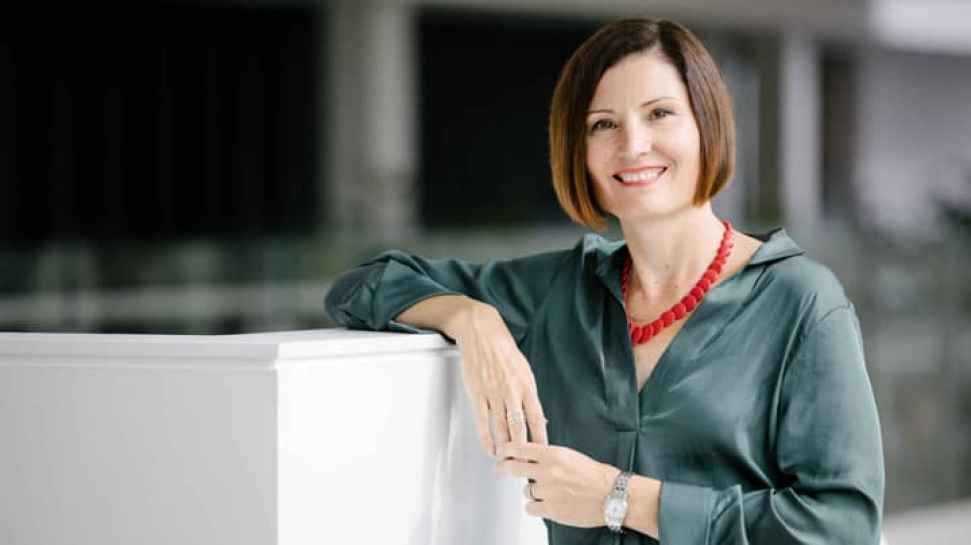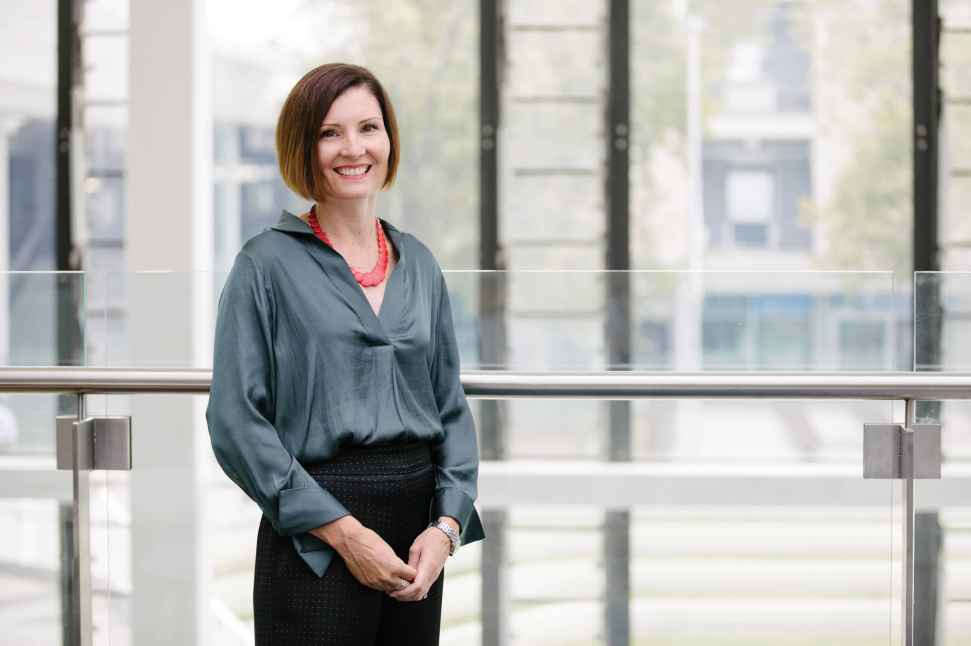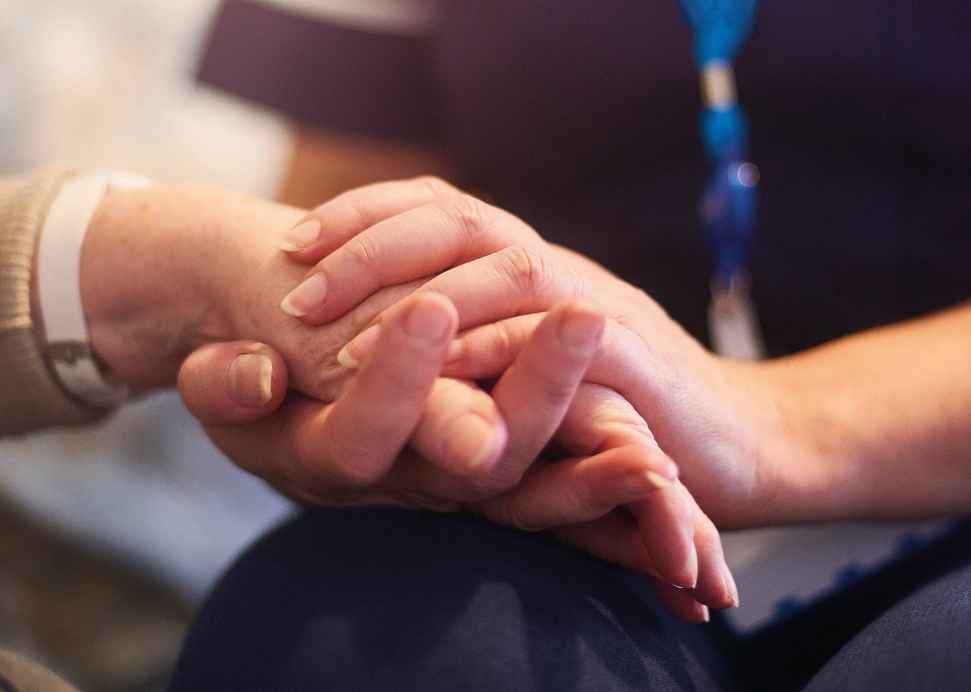Bill Condie
PRACTICE
MAKES PERFECT
—
How a new academic centre is bringing together all social work’s stakeholders.
Growing up on a farm, Professor Sarah Wendt came to understand a thing or two about isolation. And when she became a social worker, those insights began to inform her work, especially around domestic violence.
“I was extremely interested in how rural and remote women’s experiences are shaped by the context in which they live, and how they understand and respond to domestic violence,” says Professor Wendt of Flinders University’s College of Education, Psychology and Social Work.
Before her PhD, she had worked the crisis telephone lines, enabling women to flee violent situations at the point of crisis, and working with women in the women shelters.
And while her 2009 thesis, Domestic Violence in Rural Australia, explored many women’s country experiences, her experience told her that it’s not just the tyranny of distance that can cause isolation.
“It can be physical barriers to seek help, but it can also be social isolation,” says Professor Wendt. “Men’s use of violence in intimate relationships isolates women from family, friends, community, employment and leisure.”
“So, domestic violence erodes aspects of women’s lives and brings trauma into their lives. How they understand that trauma, and how it relates to domestic violence, is often complex. How do they seek help…these things are unique and make it more difficult to understand and respond to domestic violence.”
But always there is one essential element – coercive control – at its centre.
“When you look across diverse groups of women, you will see that pattern of behaviour, no matter if you’re rich, poor, religious or not, living in a rural community, or urban.”
It was Professor Wendt’s roots in the practical business of social work which drove her vision for the groundbreaking new centre she and her team have established at the University.

Sarah was appointed in 2016. She has a PhD from the University of South Australia and has taught in social work for over a decade. Prior to academia Sarah practiced in the field of domestic violence. She has published on violence against women and social work practice. Her current research projects explore the impact of domestic violence on women's citizenship, service provision for Aboriginal communities experiencing family violence, and engaging men to address domestic violence. In particular, Sarah has been researching rural women's experiences of domestic violence for over a decade in Australia and more recently how domestic violence work shapes practitioners living and working in rural communities.
“Shame and embarrassment are the biggest contributing factors, firstly, why women don't seek help for domestic and family violence.”
The Social Work Innovation Research Leaving Space, or SWIRLS, began with Professor Wendt’s vision of engaging more clearly and directly with relevant key stakeholders in
the social work ‘industry’. It launched in March 2019.
“I believe that practice really influences research in social work, and research can influence practice in social work.
“And so those two things have to have a relationship, and when that works well, we can educate the future workforce of social workers in much more up-to-date ways.”
SWIRLS is designed to engage practitioners and organisations across multiple fields, although its main current focus is in the area of domestic violence, child protection, homelessness and youth. It is designed as a space where researchers and practitioners, policy makers or other key stakeholders can come together, to confront problems together and co-design ways to tackle them.
“So, when I say practice, I mean working with people on the ground,” says Professor Wendt. “But the ultimate outcome is not just naming problems, but doing something about them.”
Professor Wendt sees it as a two-way street.
“You can have big models that have been tested and trialled, from which we can learn a lot from and apply into practice.
“But, I also think there’s a lot of work happening in practice that is invisible, and that we don’t know about.”
SWIRLS has already forged close links with the South Australian government through agencies for child protection and Housing SA. It also has a partnership with the Early Intervention Research Directorate, the EIRD, which was established in response to the 2016 Nyland Royal Commission into the Child Protection System.
The Nyland report recommended more research to increase the evidence space about how we can better improve systems, practices and child protection – an obvious fit with the SWIRLS’ vision.
SWIRLS also works with Women Safety Services South Australia tackling domestic and family violence, the Department of Child Protection, and KWY: an aboriginal specialist, family violence service.
Those three agencies are looking particularly at how collaborations can deliver better responses to families with complex needs.
“Our research is straddling two things,” says Professor Wendt. “Collaboration and changing practice, but also researching that practice as we go along so that we can trial and test and learn what we’re doing before we impose massive solutions onto a system that’s already complex.”

SWIRLS has quickly developed a reputation among researchers for an academic centre that is no ivory tower, but committed to including the lived experiences of individuals, families, groups and communities.
“We interview children or women who have experienced violence. We interview men who use violence. We try and work with families to have a say about their experiences and their responses. SWIRLS is committed to being inclusive of those that are doing the practice, and those that are receiving the practice.”
Professor Wendt acknowledges that domestic violence, by its nature, is often perceived as being private and kept secret. “That’s why we have to have awareness raising,” she says, “and I think we, in Australia, for the first time have started to really increase the awareness of domestic and family violence, and that's a good thing.
“But, it’s going to be slow in how we try and break down those barriers of privacy, or secrecy. Shame and embarrassment are the biggest contributing factors, firstly, why women don't seek help for domestic and family violence.”
And Professor Wendt believes that with awareness raising will come a new focus on changing men’s behaviour.
“The focus has always mainly been on, of course understandably, how you help women and children. I think now we are at a point in time, particularly in Australia, where you’ll now start to see much more conversations around, ‘Well, what are we doing about the perpetrator?’
“Instead of expecting women and children to deal with this all on their own, questions are at last being asked about how we enable behaviour and attitudinal change.”
Historically, this has been attempted through men’s behaviour change programs, typically a 12-week programme. But it is difficult to determine if these have been effective.
“So, we’re starting to now look at what it means to engage men,” says Professor Wendt. “We want long-term, sustainable change and I think we’ve expected too much of a 12-week program. We have to start now looking at other ways in which we’re going to work with men to stop this issue”.
Donate to research
Through research, and research-led teaching, we build and develop the knowledge and capabilities that improve lives and enhance society as a whole. Your gift can help support our projects, which are finding practical solutions to real-world challenges and create hope for a better future.
![]()
Sturt Rd, Bedford Park
South Australia 5042
South Australia | Northern Territory
Global | Online






